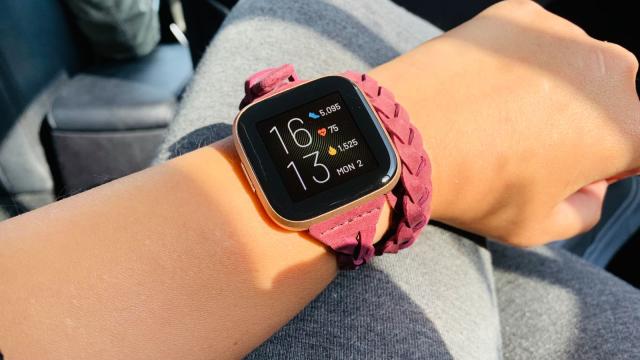At the end of last year, Google decided to reporting that the European Union is ready to launch a full-scale antitrust investigation into the deal next week.
The EU has been vocal for months that it’s got concerns with a potential Google-Fitbit merger. In February, the European Data Protection Board warned that the deal presented a major privacy risk. Earlier this month, Google made a last-ditch effort to save the deal from EU scrutiny by offering a legally binding pledge that it wouldn’t use Fitbit’s trove of health data for ad targeting. The fact that the EU seems determined to barrel ahead with a probe probably signals regulators weren’t buying it. Per Reuters, the European Commission is expected to officially launch its investigation on August 4, and it will likely span four months in its mission to explore how data is used with regard to health care.
This could be a ruh-roh moment for Google. The deadline to close the deal is November 1. If you do the maths, a four-month-long investigation that begins August 4 will blow past that date. That date, according to the Motley Fool, could be extended to May 1, 2021, but at that point, Google would have to pony up $US250 ($349) million for a breakup fee. And, the EU isn’t the only government body that’s sceptical of whether this is a good idea. The U.S. Department of Justice and Australian regulators are also scrutinising the deal.
From a wearables standpoint, it makes sense that Google’s made a play for Fitbit. Let’s be real: Wear OS sucks, has sucked for a long time, and shows no signs that it will stop sucking in the near future. Fitbit has also struggled in recent years. After buying Pebble, its Ionic smartwatch wasn’t a smash hit and while it saw more success with the Versa, that didn’t stop reports that Fitbit was shopping around for a buyer after disappointing Versa Lite sales. That coupled with Google’s renewed interest in what it calls “ambient computing” and a recent investment in Fossil wearable tech, buying Fitbit would be the fastest way to compete with Apple, Samsung, Huawei, and Xiaomi.
Plus, you know, Fitbit has that tasty, tasty health data. Fitbit trackers and smartwatches can track everything from heart rate, sleep, activities, and reproductive health (and yes that may include when you have sex). And, since the onset of the global pandemic, Fitbit is even trying to see if its devices can detect covid-19 early. Privacy and consumer protection groups have been vocal from the get-go that the deal would only strengthen Google’s stranglehold over things like search, advertising, and consumer data. Health data, in particular, is both valuable and highly sensitive. It doesn’t inspire confidence that shortly after the deal was announced, Google reportedly amassed millions of people’s health data without their consent or knowledge via a program called “Project Nightingale.” (Though to be fair, Fitbit’s also been profiting off your health data long before the Google deal.)
Truthfully, it’s no skin off Google’s back should this deal fall through. At most, it’ll set back whatever its renewed wearables plan is. For Fitbit, it’s a little more precarious. In any case, it might be months before we know what happens. In the meantime, I wouldn’t hold my breath for a Pixel Watch though.
